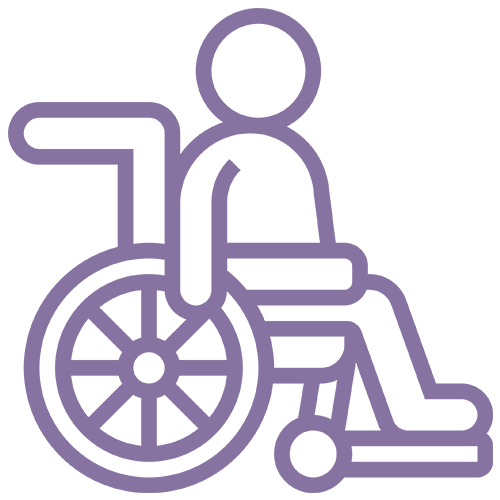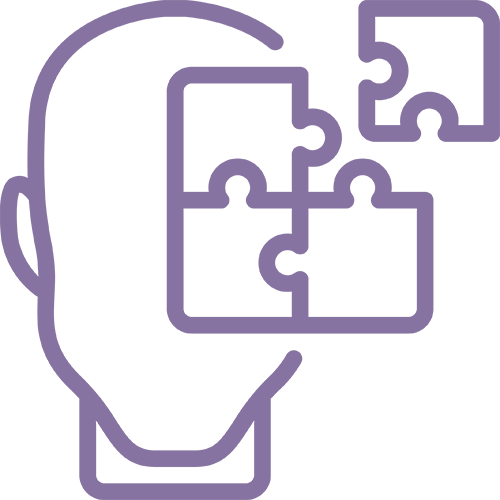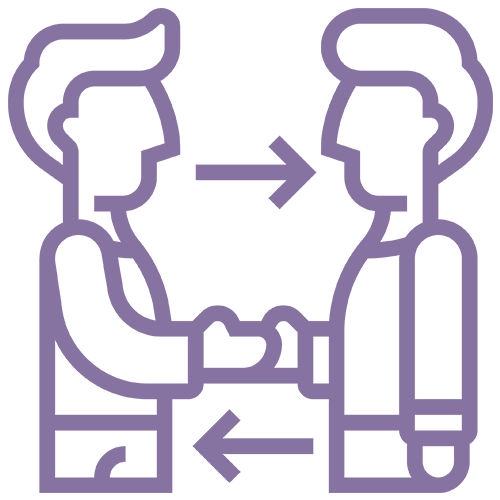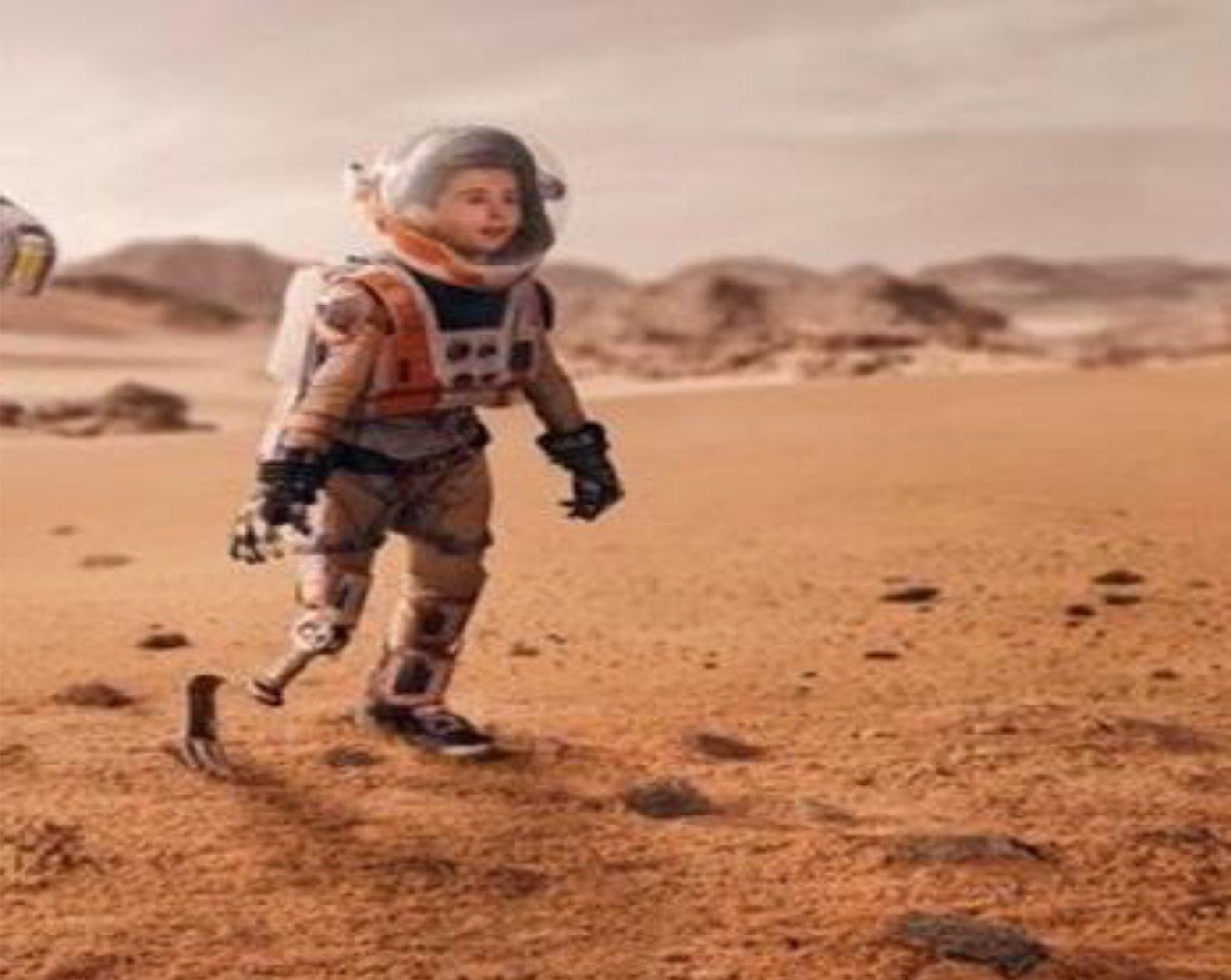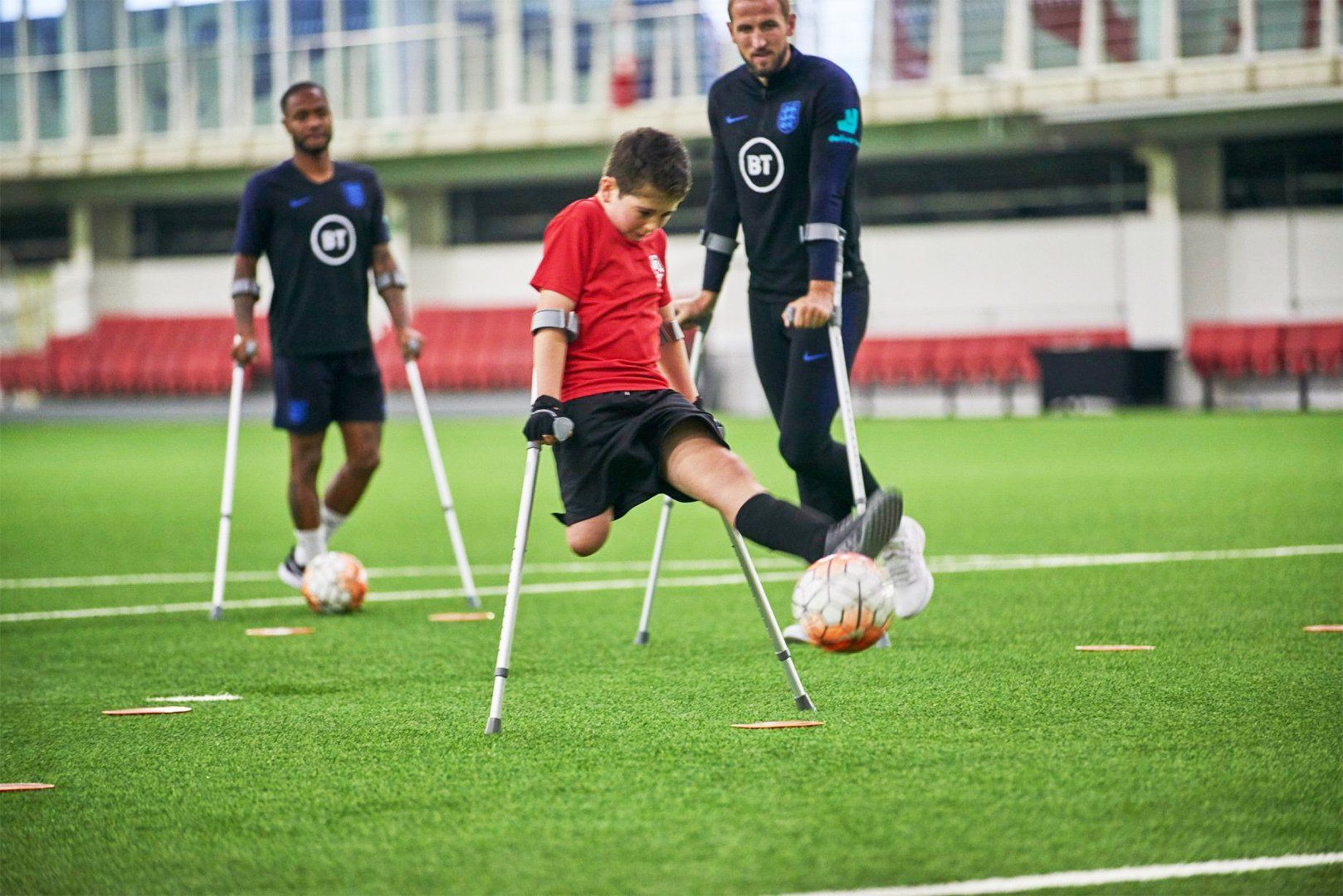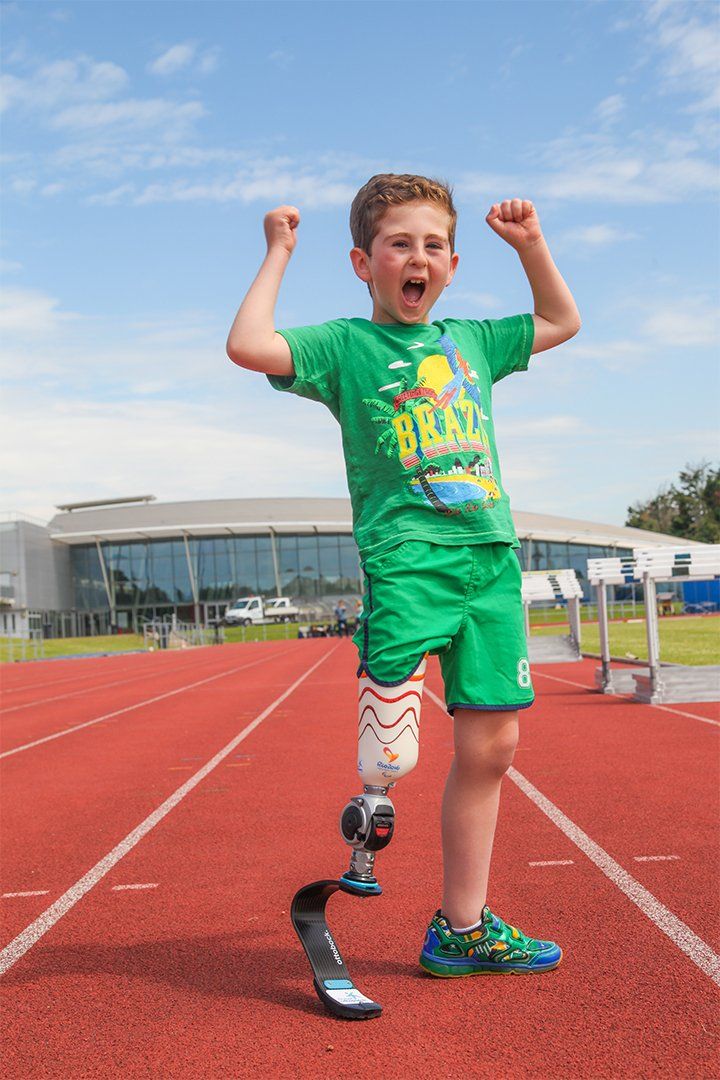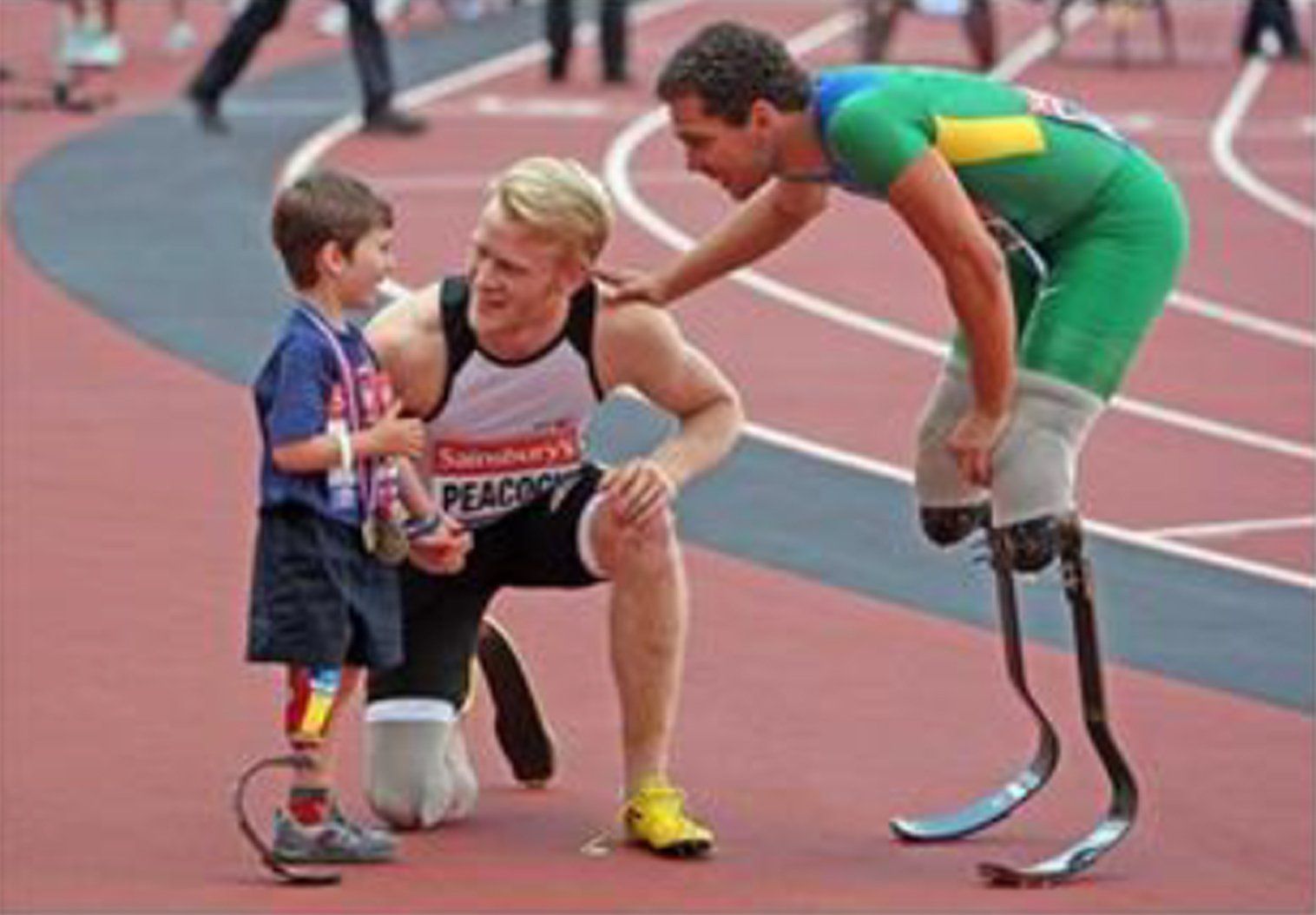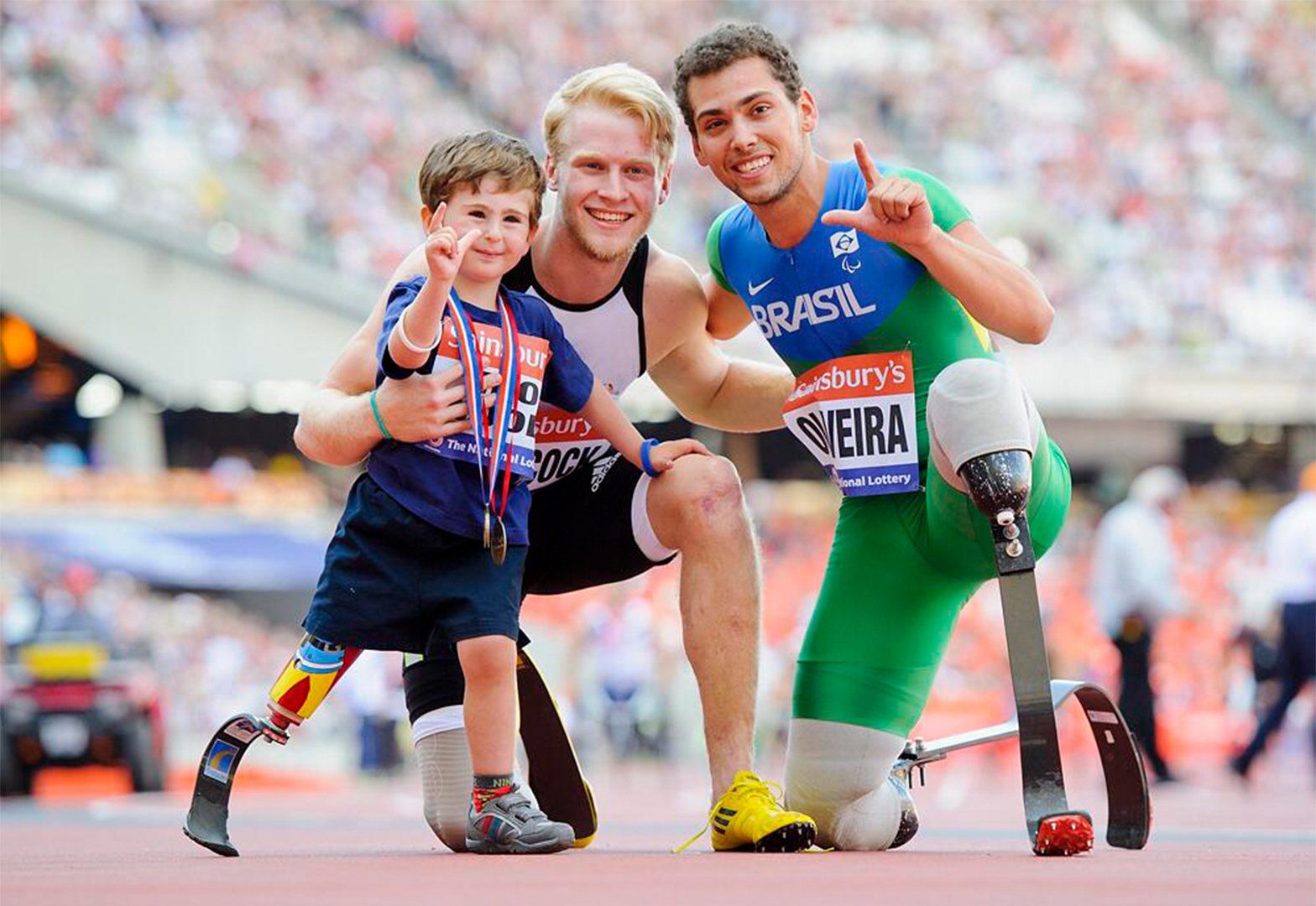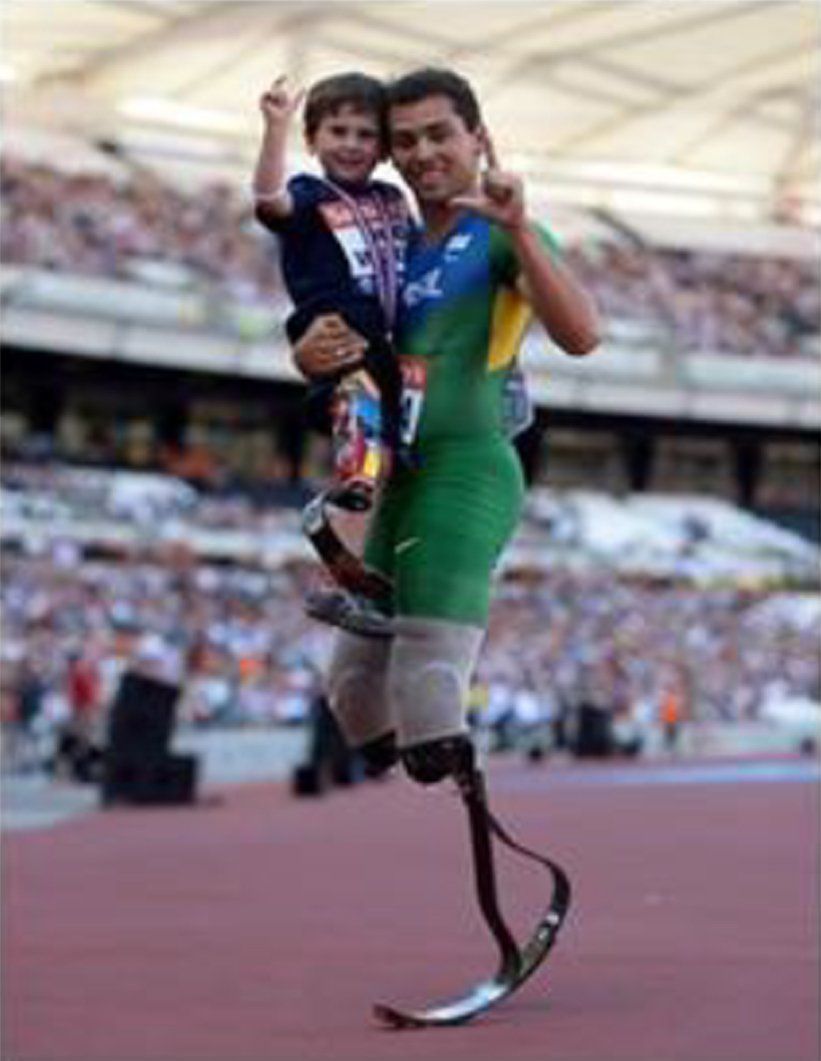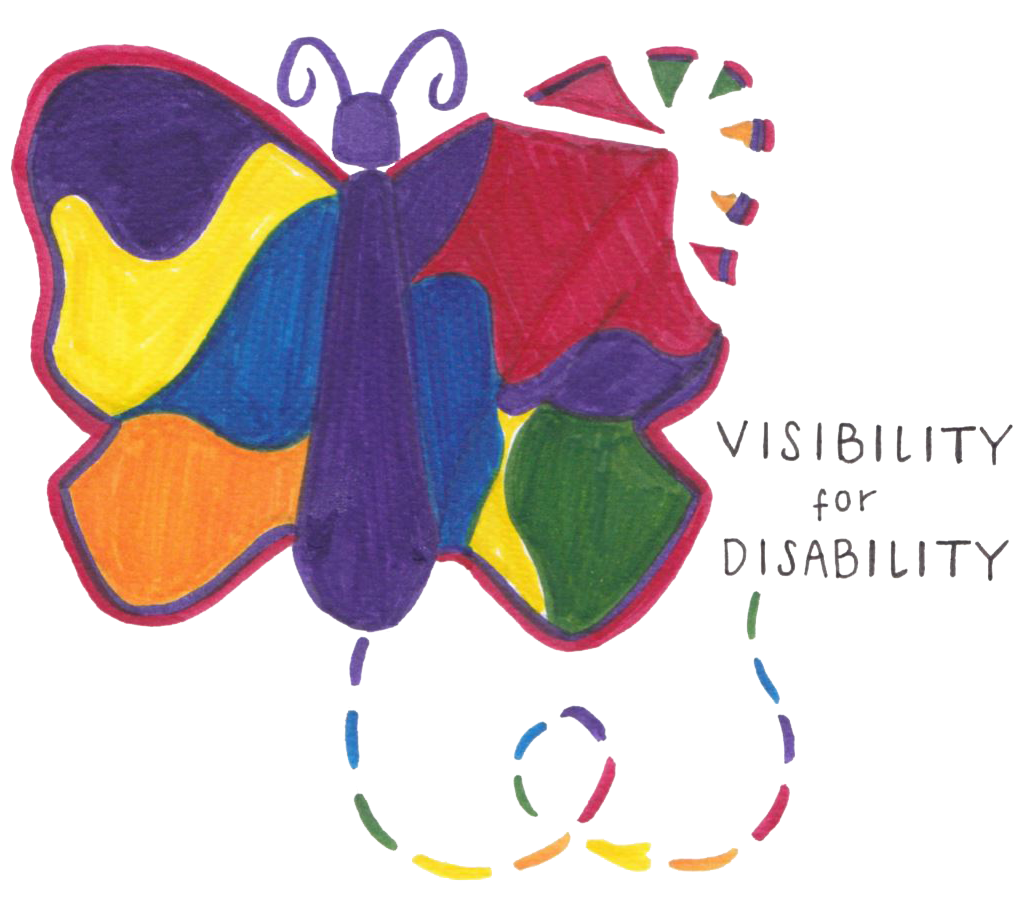PERSONAL JOURNEYS,
PERSONAL STRENGTH
Visibility for Disability is about creating a space for people to share their personal experiences and insights. Here you can learn about the personal journeys of individuals, and how they find personal strength.

Stand Up for
Sitting Down
Max Morris’s thoughts on ‘Stand up for Sitting Down’ aims to defend people who use wheelchairs against hurtful comments and bullying.
Positive Vibes
Only: Autism
Lauren Ettinger focuses on the positivity aspects of living with autism and how having a disability is a positive trait.
‘I Can Spell
Dislexya’
Shuli Miron gives an insight into her experience of living with Dyslexia. The writing has not been edited for the purpose of maintaining authenticity from the writer’s perspective.
Rio Woolf takes us on an inspiring journey as he shares what is possible in life with Tibial Aplasia, a limb malformation, which resulted in Rio having one leg amputated.
Living an adventurous life with Para-Sport & Prosthetics
By Rio Woolf
I was born with a one-in-a-million bone deficiency – Tibial Aplasia, so I had no tibia, knee or ankle joint – and I had to have an amputation through the knee when I was 14 months old so that I could wear a prosthetic leg and live the most mobile life possible. I got my first leg when I was 17 months old and I took my first steps one year after my operation when I was 2 years, 2 months old – as soon I could walk I was kicking a ball around and I started going to weekly toddler football sessions as well as swimming lessons which I started when I was 3 months old.
I went to the London 2012 Paralympics when I was 4 years old and it changed my life! I was so inspired by my Paralympic heroes - Gold Medalist amputee sprinters Jonnie Peacock (GB) and Alan Fonteles Oliveira (Brazil) - that I made three wishes: 1) to get my own running blade; 2) to meet my Paralympic Heroes; and 3) to run on the Olympic Stadium track in their blade steps – and within one year by the time I was 5, all my dreams had come true! I was very lucky to be invited as a special guest by the Brazilian Paralympic Committee to the 2013 Brazilian Schools Paralympics in Sao Paulo when I was 5, and then to the Rio 2016 Paralympics when I was 8 where I walked in the Torch Relay. I also followed the Invictus Games around the world as the wounded veterans really motivated me to follow my sporting ambitions – from London 2014 where I met Prince Harry and he invited me to Orlando 2016, to Toronto 2017 where I met him a third time, and then I saw him again with Meghan at Sydney 2018 where I met David Beckham!
From the age of 4 to 11 I participated in lots of junior para-sport events organised by amputee/disability sports charities in the UK: the LimbPower and WheelPower Junior Games, and the Arctic One Junior Para-Triathlon (I’m one of their Junior Sports Ambassadors); and abroad: Camp No Limits in Maine, USA (an amputee children’s camp). This was all thanks to my great prosthetics: in total I’ve had 26 prosthetic day legs/running blades/water activity legs/sockets from the age of 17 months to 12 years old because I need a new bigger socket every six months as I grow. In 2018 when I was 9, CBBC’s Operation Ouch asked me to share my prosthetics and para-sport journey as an ‘Ouch Patient’.
I am sports mad - as well as football and swimming, I used to play tennis and wheelchair basketball every week! I became a Watford FC fan in 2014 when I won Watford’s Local Hero and met the team – the Captain, Troy Deeney, treated me to a Mascot Day in 2015! In 2016 when I was 7, I joined the England Amputee Football Association (EAFA) Junior Squad and have been going to their training camps in Cheshire, and the European Amputee Football Federation (EAFF) junior camps ever since: Dublin 2016, Warsaw 2017 and Rome 2018. In October 2019 I had the best surprise ever when I went to train at St George’s Park with some other EAFA Juniors and my England heroes joined us on the pitch – Harry Kane, Marcus Rashford and Raheem Sterling – they had a go at playing on crutches like we do and the film was shown on Children in Need in November 2019. I also play Sunday League football – first for Hatfield in the Excel League (2019/20) and now I train with Northwood FC Blacks U13 (2020/21). My ambition is to play for the EAFA Senior Squad when I’m 16.
Sumita Sethi shares her experience as she proves that anyone can achieve their dreams against all odds. Living with Cerebral Palsy, as well as being partially blind and having complex needs, Sumita lives independently and is a published bi-lingual author. This story highlights the importance of always living positively and never giving up.
Unstoppable
By Sumita Sethi
I was born into this world two months early. As a baby I never cried, I never crawled, I never smiled. Over time, my mother began to notice that something about me wasn’t right. However, she was convinced by her relatives that she was under some illusion and that she shouldn’t worry because I was absolutely fine.
It was only when, one day, my cousin was trying to play with me and my favorite doll. Everyone, who was watching this interaction, noticed that something was definitely wrong because I was not showing any reaction towards my cousin. This incident raised alarm bells.
After being diagnosed with Cerebral Palsy, all the doctors that my parents met, declared that I will never be able to walk or talk again. By definition, Cerebral Palsy is a neurological disorder which affects body movement and speech. It appears in infancy or early childhood.
My grandmother was the one who never gave up on believing what is possible for me and my life. She encouraged me to push past my limiting beliefs about what I can and can’t accomplish. I never believed that one day I could be independent and express myself freely. Thanks to her I travelled abroad and continue to receive loving support.
I was aged 7 when I took my first step - despite being told that I would never be able to walk.
I was aged 7 when I spoke my first word, despite being told that I would never be able to speak.
I am now living an independent life. I enjoy cooking, listen to music, socialising and writing.
Maya Robinson shares her thought-provoking perspectives about Down Syndrome. This honest refection is a reminder of the remarkable role families can play to empower loved ones with Down Syndrome to overcome prejudice.
A Sister’s Perspective on Down Syndrome
By Maya Robinson
My sister Ruby has Down Syndrome. She is loving, funny, cheeky, and stubborn and having Down Syndrome does not define her – it is simply a part of her. I have been asked a few times if I would give Ruby a pill to make her Down Syndrome go away (purely hypothetical of course) and it is always an easy answer – no, because then she wouldn’t be Ruby anymore. If you have never met a person with Down Syndrome, you will probably assume it is a devastating learning disability, which prevents people from living full lives and integrating into society. This has not been my experience at all, or the experience of countless other families who have someone with Down Syndrome. I have never felt that Ruby having Down Syndrome negatively impacts her life or the lives of the people close to her, quite the opposite. The problems we have encountered have more to do with the misguided perceptions of other people. Ruby does experience challenges, but they can always be overcome with the right support. The fact that Ruby has Down Syndrome does not mean her life is less valuable than the life of anyone else.
The rate of pregnancy termination for foetuses with Down Syndrome is increasing. I believe every woman has the right to choose to have an abortion, but the importance of informed decision making cannot be overstated. Currently, foetuses with Down Syndrome can be terminated after 24 weeks. This implies that the lives of people with Down Syndrome are worth less than the lives of others, which is not the case at all. Of course, expectant mothers must know the reality of what it is like to have a child with Down Syndrome. There are extra challenges. Your child might need a heart operation or hearing aids; they may take longer to learn how to speak, walk and read; they may have other medical problems. But there is also so much joy and laughter brought by a child with Down Syndrome to the lives of those around them.
People with Down Syndrome and other learning disabilities often find themselves excluded from mainstream society. This has nothing to do with their abilities. It is due to the inaccurate perception of disability that persists in our schools, workplaces and communities. My parents and I find that we constantly have to advocate for Ruby. We have to explain why she deserves to be included where other children are accepted without a second thought. After being turned away from multiple secondary schools, we felt extremely lucky to find a mainstream school that fully includes Ruby and tailors her education to her needs. However, we should never have been put in the position where Ruby did not have the same choice of school as anyone else. People with Down Syndrome are restricted, not by their own limitations, but by the assumptions and prejudice of others. For Ruby and all children with Down Syndrome to be fully included in society, awareness and education about the realities of Down Syndrome needs to become the norm. Ruby is proud of having Down Syndrome and I truly believe everyone would be better off with a little bit of Ruby in their lives.
Leah Pearl talks frankly about her experience with Tourette’s Syndrome, a condition that causes movements and sounds that can’t be controlled.
For Tics Sake!
By Leah Pearl
Hi, my name is Leah Pearl and I would like to talk about my condition that most people do not understand. Ever seen or heard someone making unexpected noises or actions? If you have, chances are that they have Tourette’s Syndrome, also referred to as TS or just Tourette’s. Take a moment to think about what you would think if you saw somebody suddenly yelling something or jumping or just making some sort of action or sound randomly. I can guarantee your first thought would be ‘why did they do that?’ or ‘what a weird person’. You would probably stand and stare at them making the person uncomfortable. Although you might not know them you don’t know whether this could be because they have Tourette’s. The worst thing that you could do is to stare at them. The best thing to do is either ask them kindly, ‘hi, how come you sometimes make noises or actions?’ or you could just ignore it. This person would have probably have had many questions like this before so it could make the person uncomfortable so would therefore not want to answer. I have not personally been exactly ‘bullied’ for it, but I have had people imitating my tics which can be very upsetting and offensive. I cannot control my tics and I cannot suppress a tic… that makes it worse. To make it clear imitating somebodies’ disability will make that person embarrassed and very insulted.
What exactly is Tourette’s?
Tourette’s is most commonly known for someone that swears and yells, although, tics can be someone making a noise or an action. Sometimes when I tell someone that I have Tourette’s the immediate answer that I get is ‘but you don’t yell or swear!’ But what these people do not know is that, that is not the only way to tic. Tics vary with every person so although I do not have the swearing tic, I do make vocal noises and my body jerks. I get neck tics/jerks, foot, hand and even stomach tics. Sometimes, these can be quite painful, especially the neck jerks. What a lot, if not most people do not know, is that Tourette’s actually has a lot of cross overs with autism. When you have Tourette’s, most people get it along with other conditions as well. For example, I have severe unexplained anxiety which makes me scared to be in the house by my-self and I also have a lot of fears such as animals and heights. I have a few OCD traits as well. My Tourette’s also comes with processing disorder. Not all people with Tourette’s have the same symptoms. TS is genetic and rarer in girls. Two of my male cousins in America have TS tics.
Some people may wonder what it is like to live with Tourette’s
I first noticed my tics back in year 5 when I was 9. My friend noticed my head moving so she said to me, ‘Leah why are you nodding your head’ the only answer I could give was ‘I don’t know’. So, when I was diagnosed it explained why I was making these actions. Therefore, if people questioned it my answer was no longer ‘I don’t know’. When I started secondary school, new friends noticed my tics at first but after a while it is no longer noticeable. When I’m nervous and over tired the tics are worse. You may think that I may notice them, but the funny thing is that I don’t even think about them anymore!
Get in Touch
If you have any questions about the issues discussed in our Open Thoughts or Conversations podcast, or would like to recommend a child to Visibility for Disability, please get in touch – we look forward to hearing from you!
